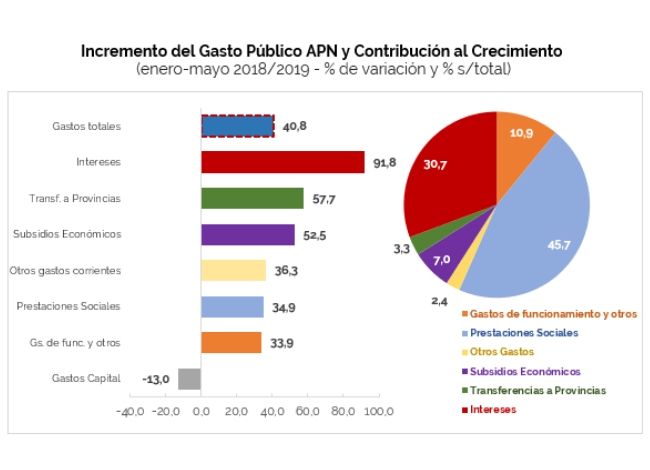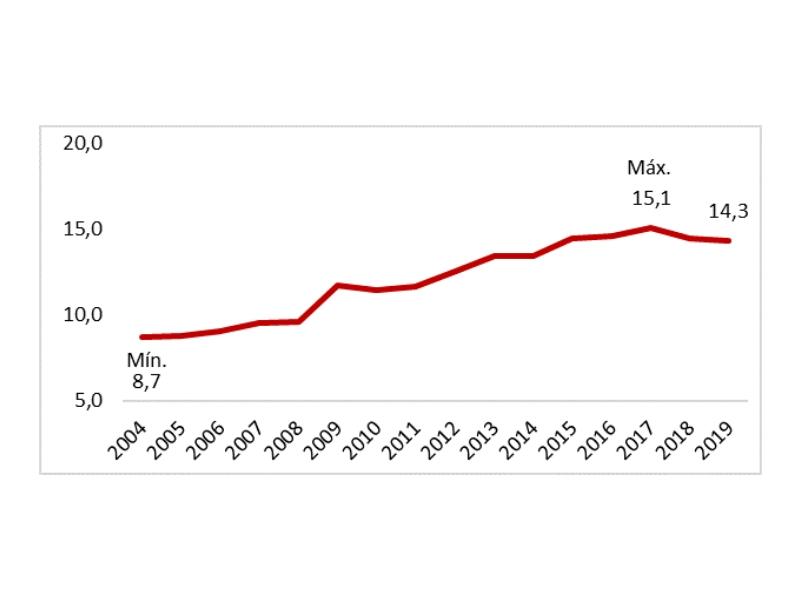
National Government Budget Execution Report – May 2019 – Accrual Basis
In May, the national government recorded a primary surplus of AR$23.99 billion but a financial deficit of AR$22.38 billion, within a framework of an acceleration in the fall of revenues in real terms. Expenditures, also in contraction, had the seventh month of decline measured against inflation.
In the term January-May, expenditures increased 40.8% year-on-year. Interest on debt, transfers to provinces and economic subsidies recorded the largest expansions in the period with 91.8%, 57.7% and 52.5% YoY, respectively. Social benefits (34.9% YoY), operating expenses (33.9% YoY) and capital expenditures (-13.0% YoY) were below the increase in total expenditure.
Social benefits account for 45.7% of the increase in total expenditure, while interest payments account for 30.7%. Both explain 76.4% of the increase in expenditure in the period under analysis.
- National government revenues (40.5% YoY) again grew above expenditures (36.9% YoY), although the differential is reduced to 3.6 percentage points (p.p.) (5.2 p.p. in April).
- Personnel expenditure recorded a real fall of 14.6% YoY, in line with the retraction experienced in the salaries of several sectors (SINEP).
- After the first five months of the year, the financial balance is in deficit by AR$180.51 billion, reflecting a real reduction of 17.0% compared to the same period of the previous year.
- So far this year, the expenditure components that grew the most were Debt Interest (91.8% YoY), Transfers to Provinces (57.7% YoY) and Economic Subsidies (52.5% YoY). At the other extreme, capital expenditure contracted 13.0% YoY in nominal terms.
- The 76.3% of national government expenditure is rigid.
- At the end of May, the execution level of total expenditure reached 35.4% with respect to the current appropriation, higher than the level observed during the same period of the previous year, which reached 32.3%.

